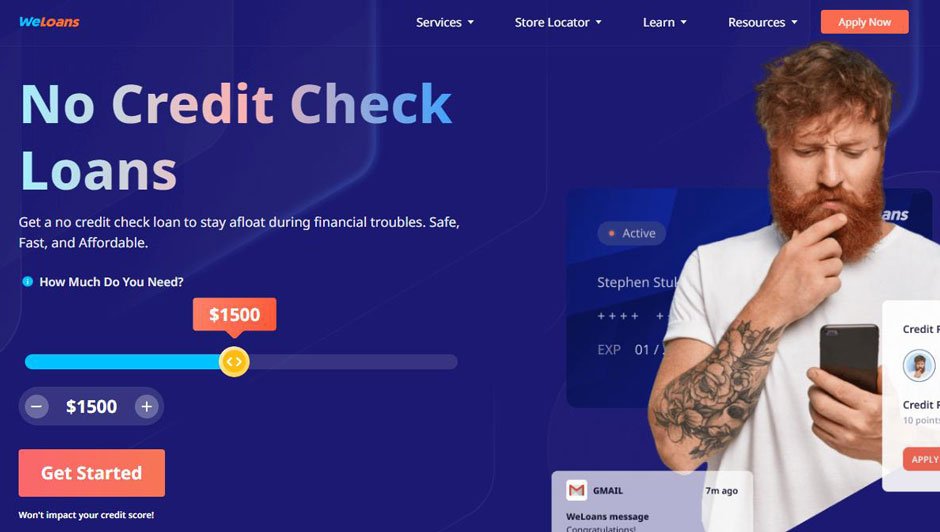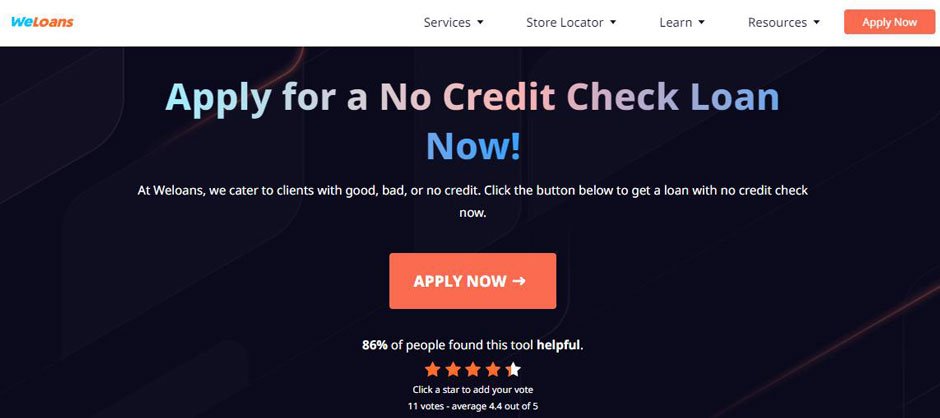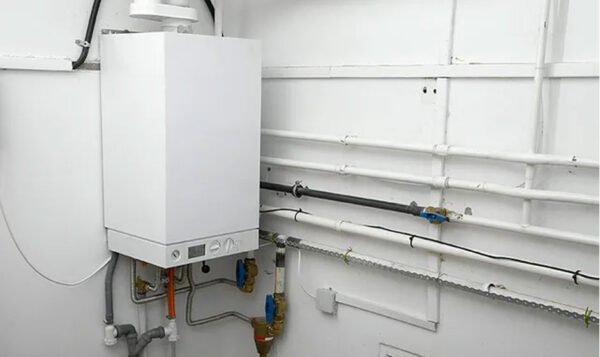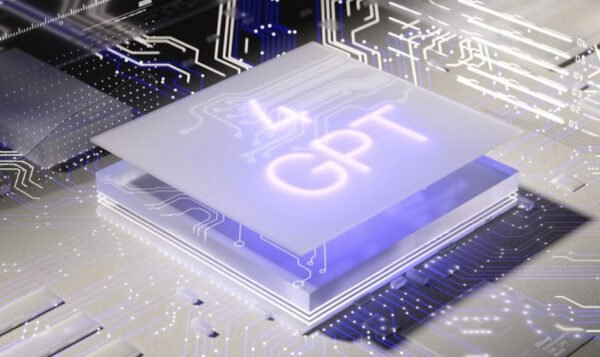No Credit Check Loans: Your Ultimate Guide to the Best Options

As you navigate the tricky world of personal finance, you may find yourself in need of quick cash but lack access to traditional loans or credit cards. For those with little to no credit history or a poor credit score, no credit check loans can seem like an appealing option. However, it’s important to understand exactly what these loans entail before signing on the dotted line.
This guide provides an in-depth look at no credit check loans, including eligibility requirements, fees, risks, and the best options currently available. By educating yourself on these alternative financial products, you can make the choice that aligns with your needs and avoid potentially predatory lending practices.
What Are No Credit Check Loans?

No credit check loans from the broker WeLoans are personal loans that do not require a credit check as part of the application process. Instead of relying on your credit score and credit history to determine your eligibility and terms, no credit check lenders evaluate your ability to repay the loan based on your income, employment status, and other factors.
These loans are designed for those with poor or no credit who would otherwise not qualify for a traditional personal loan. While no credit check loans provide access to quick funding, they often come with higher interest rates and fees to offset the increased risk to the lender. The loans typically need to be repaid in a shorter period of time, usually within a few months up to a couple of years.
Who Qualifies for No Credit Check Loans?
To qualify for a best no credit check loan on WeLoans, you must meet certain eligibility criteria. These loans are designed for those with little or no credit history, so approval is based more on your current financial situation.
- You must be 18 years of age or older. As with any legal financial product, you must be of legal age to enter into a loan agreement.
- You must have a steady income source. Lenders will evaluate your debt-to-income ratio to ensure you can afford loan payments. Acceptable income sources include employment, self-employment, Social Security benefits, disability benefits, child support, alimony, and others.
- You must have a valid ID, social security number, and proof of address. These documents are required to verify your identity and ensure you are a real person.
- There are certain restrictions based on your state of residence. Not all lenders offer no credit check loans in every state due to varying regulations. Check with lenders that operate in your state.
- Your eligibility can depend on the specific lender and loan type. For example, some lenders may allow those with past bankruptcies while others do not. Loan options like payday loans typically have fewer eligibility restrictions than personal installment loans.

Types of No Credit Check Loans Available
No credit check loans come in several types to suit different needs and eligibility. WeLoans has listed the three most common options on site:
Payday Loans
Payday loans are short-term loans for small amounts, typically $500 or less. They are meant to tide you over until your next paycheck. Payday loans have very high-interest rates, often over 300% APR, so you’ll pay a hefty fee for convenience. Payday loans must be repaid quickly, usually within two to four weeks.
Title Loans
Title loans use your vehicle as collateral, so you can borrow a larger amount based on the value of your car. Title loans often have lower interest rates than payday loans but still very high, around 300% APR. If you default on the loan, the lender can repossess your vehicle. Title loans typically must be repaid within 30 days to three years.
Installment Loans
Installment loans allow you to borrow $500 to $5,000 and repay over six months to five years. Interest rates on installment loans are lower than payday or title loans but higher than credit cards or personal loans. Installment loan lenders check your income and monthly expenses to determine if you can afford the repayments before approving your loan.
The Risks of No Credit Check Loans and How to Avoid Them
No credit check loans may seem appealing, but they do come with risks that you must be aware of before borrowing. By understanding the potential downsides, you can take steps to avoid them and use these loans responsibly.
High Interest Rates
Since no credit check loans do not require a credit check, lenders view them as higher risk. To offset this risk, lenders charge much higher interest rates, often over 36% APR. These high rates mean you end up paying far more for the loan than the actual amount borrowed. Make sure you can afford the payments before taking out a no credit check loan.
Aggressive Collection Tactics
Some predatory lenders use aggressive tactics to collect on overdue no credit check loans, such as harassing phone calls, threats of legal action, and contacting employers or family members. Do research on lenders and check their collection policies before borrowing to avoid shady operations. Legitimate lenders will treat you with respect and work with you on repayment plans if needed.
Potential to Trap Borrowers in Debt
The high interest rates and short repayment terms of no credit check loans can make them difficult to pay off, trapping some borrowers in cycles of debt. Borrow only what you can afford to pay back to avoid owing more in interest and fees than the original loan amount. Make a realistic budget before taking out a loan to ensure you can make the payments. Consider other options first if possible, like borrowing from friends/family, selling unwanted items, or finding a side gig to earn extra money.
Conclusion
To sum up, no credit check loans can be a viable option if you need quick cash and have limited options due to bad or no credit. However, you must go in with realistic expectations about high interest rates, fees, and repayment terms. Do your homework, compare offers from different lenders, read the fine print, and only borrow what you can afford to pay back.
While no credit check loans are not ideal, when used responsibly they can be a temporary solution to get you through difficult financial times. There are always better options out there, so work to improve your credit and open up more doors as soon as you’re able. With time and effort, you can gain access to lower-cost loans and put these risky products behind you.



